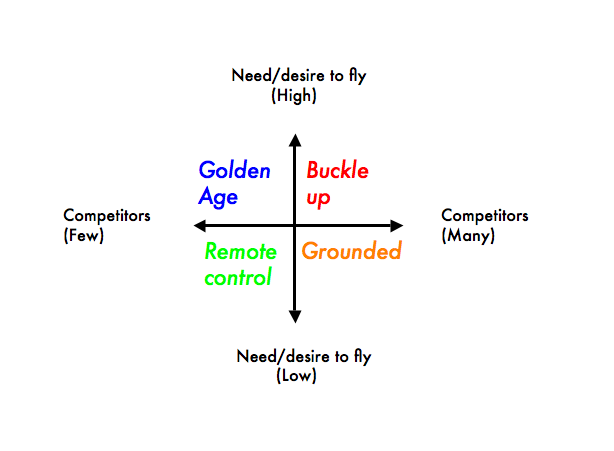James has just sent me an email:
“You mention on one of your Timelines “Middle Class Revolution” With the recent situation in Greece and other European countries could this scenario occur, and what could happen if such a scenario happened?”
I usually find it easier to ask questions than answer my own questions, but let’s explore this. Firstly it’s not my idea. Some time ago I noticed a wild card developed by the MOD that was more or less this. The idea being that instead of a working class revolution coming from Marxist ideals you get a middle class revolution coming from elsewhere.
Specifically (and I’m making this up now) the middle gets fed up with the fact that those at the bottom of society are protected economically in the sense that they have lost everything already (they are already unemployed and on benefits so how much worse can it get?). Similarly, the elite at the top (1%, 10% who can say) are protected in the sense that they have enough money to avoid tax or physically move if things get really nasty. Hence, the much talked about middle class squeeze where the normally quiet classes get rather angry about the fact that they can no longer afford certain things (decent schools, hospitals, houses and so on).
Is this what’s happening right now with the protests? Is this a middle class revolution? No. What’s happening now is largely youth based the aims of which are rather fuzzy. What ties the protests together (and I think this does link with feelings elsewhere) is a kind of general dismay and disappoinment. People know something is wrong, but they are unsure what it is and what should be done about it. There is certainly a link between austerity and unrest too, but I can see very little linkage with the Arab Spring.
So in general this is more of a re-birth of youthful socialist ideals than any revolution from a broader middle-aged, middle-class base as far as I can see.
One point I would like to make is that I think this whole issue is largely about fairness, but the thing that many people seem to have forgotten is that it takes two sides to make a bad loan and the bankers (a few not all of them) supplied the money, but someone, somewhere, took it. Many of the people complaining about austerity are precisely the ones that borrowed too much money and saved next to nothing and they are equally to blame when it comes to greed.
What is more interesting to my mind, and potentially a trigger that turns mild protest into something much nastier, is that what is now dawning on a few people is the idea that things could be getting worse permanently. What I mean by this is that people got used to the fact that one generation lives better materially than the last. This went on from about the 1960s onwards. But the rise of the East and decline of the West means that this may no longer be true.
It could be that living standards are now going to decline over the long-term and that infrastructure and services start to crumble too. Add to this weaker labour unions and stronger corporations and…
When things go wrong people often look for someone to blame. At the moment the anger is directed at bankers and government and I guess the aims of the protesters is some kind of replacement for capitalism (what the aims of protesters in Greece are I really have no idea). Will they succeed? No. Not unless something happens externally. If the global economy does go into meltdown then this will, I believe, trigger a major re-think about how the entire system operates (something that didn’t happen last time because things didn’t collapse enough).
This could result (but I doubt it) in nice cuddly capitalism. Or, more likely, anger starts to be directed externally and it is globalization that collapses in the sense that it’s every nation for themselves and we see a rise of isolationism and economic protectionism.
Or perhaps we get a bifurcation where the West (and North) move towards a decade or more of austerity (shades of Japan in the 1990s) whereas the East and South boom. Personally I find this a little unlikely due to our newly connected nature, but it’s possible.
So could a middle-class revolution happen? Certainly. But I can’t see one coming quite yet. As to what would happen if there were one that’s a good question. To answer that one would, I guess, have to define middle-class and then dig into the values and ideals of this group, if indeed such a coherent group exists.
One final thought. What really worries me is not austerity per se but the level of youth unemployment in some countries and the widening gap between the haves and the have nots. A lack of social cohesion and resilience (strong in the 1930s) is are also areas for concern and is perhaps why it is difficult to believe that the current protest will endure.
So in summary the protests are not about ethics per se but about what happens when rising expectations meet declining opportunities.
The most interesting thing of all is perhaps the fact that people feel the need to physically occupy a space to make some kind of point. People Facebook and Twitter alone but they still protest together it seems.


